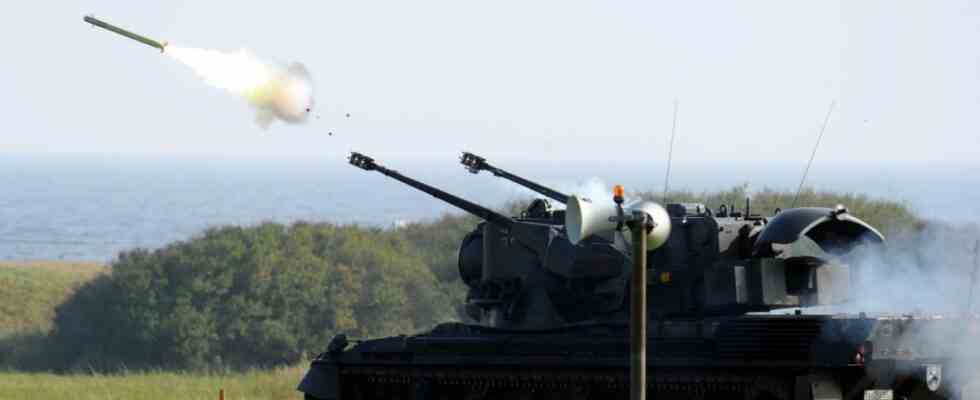In the Swiss debate on the release of weapons and ammunition for Ukraine, a way out is emerging: in the responsible parliamentary commission, the FDP and SP have found a compromise that could introduce an amendment to the War Material Act. So far, countries have been contractually prohibited from passing on weapons purchased from Switzerland.
The compromise proposal now provides that the non-re-export declaration for Swiss weapons can be limited to five years if a country represents the same values as Switzerland and has a similar export control regime.
If the country of destination is at war, transfer is only permitted if the country exercises its right to self-defense. Either the UN Security Council or the UN General Assembly (with a two-thirds majority) must have determined that the country was attacked in violation of international law.
The necessary law will not come before 2024
If the agreed conditions are met, the Federal Council can declare non-re-export declarations that were signed more than five years before the change in the law to be cancelled. In other words: Germany could use ammunition for the Cheetah-Anti-aircraft tank, which it bought years ago in Switzerland, to Ukraine as soon as the new law comes into force.
The decision in the committee was extremely narrow with twelve votes to ten and three abstentions. According to reports, the majority of the FDP, SP and the center agreed. The SVP and the Greens opposed this, albeit for different reasons.
The proposal must now be approved by a second parliamentary commission before the actual legislative work begins. If parliament agrees – probably by the summer – a referendum is still possible. From today’s perspective, it is therefore unlikely that the change in the law will come into force before the beginning of 2024.
The matter will still lead to arguments in parliament: The Swiss People’s Party (SVP) had already decided to reject any amendment to the War Material Act that would allow arms deliveries to Ukraine. At their last assembly of delegates, the Greens also spoke out against relaxing the rules by a large majority.
So far, the government has referred to the principle of equal treatment for the warring parties
The government has so far rejected all requests for the transfer of Swiss weapons. In doing so, she took the position that a permit would not only violate the War Material Act, but also the principle of equal treatment for the warring parties under neutrality law.
International law experts also point this out. From the point of view of Marco Sassòli, a professor at the University of Geneva, this question goes to the core of international neutrality law. The Hague Agreement of 1907 obliges Switzerland to treat warring countries equally.
Basically – so the critics argue – Switzerland would then have to approve a request for the re-export of arms to Russia. International law expert Thomas Cottier comes to a different conclusion. In his view, the Federal Council could even allow weapons to be passed on without changing the War Material Act.

